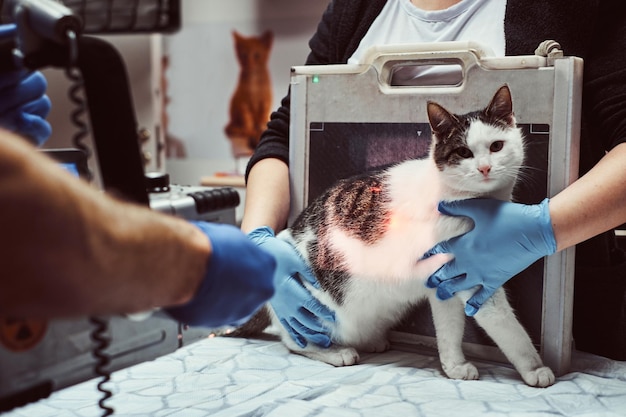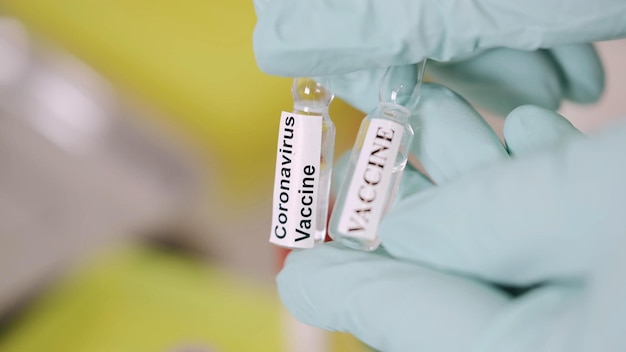Understanding Spay and Neuter Surgery for Thomson, GA Pets


Understanding Spay and Neuter Surgery for Thomson, GA Pets
If you are a pet owner in Thomson, GA or the surrounding communities, you have likely heard conversations about the importance of spaying and neutering your dog or cat. Deciding to move forward with spay and neuter surgery can bring up many questions, from what the procedure involves to how it benefits your pet and the broader pet community. At Reese Veterinary Hospital, located at 658 Main Street, Thomson, GA 30824, our team of veterinarians is here to guide you through every step of this important decision.
In this article, we will explain how spay and neuter surgery works, what benefits you can expect for your pet’s health, and how these procedures help manage pet populations in Thomson and neighboring areas. You will learn what to expect before, during, and after your pet’s procedure, and how our compassionate veterinary professionals work to ensure safety and comfort throughout the process. For those searching for a “vet near me” who offers personalized, full-service care—including spay and neuter surgery in Thomson, GA—this guide will help you feel confident in making the best choice for your pet’s wellbeing.
When Should You Consider Spay and Neuter Surgery for Your Pet?
Recognizing the Right Time
Many pet owners wonder when spay and neuter surgery in Thomson, GA becomes necessary for their dog or cat. The right time depends on several factors, including your pet’s age, breed, and overall health. Most puppies and kittens are eligible for sterilization as early as eight weeks old, though your veterinarian may recommend a slightly later age based on your pet’s specific needs.
Signs that it may be time to discuss surgery include noticing your pet reaching sexual maturity—which can be as early as five months for some cats and dogs. Behavioral changes such as roaming, mounting, marking territory, or attracting unwanted attention from other animals are also indicators that your pet is entering a reproductive stage. Additionally, if you have recently adopted a pet from a shelter or rescue without documentation of prior sterilization, it is important to contact a veterinary team to discuss scheduling the procedure.
Pet owners in Thomson and surrounding communities often find that understanding the timing for spay and neuter surgery helps avoid accidental litters, reduces unwanted behaviors, and supports their pet’s long-term health.
Why Do Pets Need Spay and Neuter Surgery? Understanding the Background
The Importance of Pet Sterilization in Thomson, GA
Spay and neuter surgery in Thomson, GA is a routine veterinary procedure with far-reaching benefits for both individual pets and the community. At its core, these surgeries are forms of pet sterilization, meaning they prevent reproduction in dogs and cats. For female pets, “spaying” refers to the removal of the ovaries and uterus; for males, “neutering” means removing the testicles. Both procedures are performed under general anesthesia and managed by skilled veterinary professionals.
The reasons for pet sterilization are multifaceted. First, the procedure directly combats pet overpopulation, which is a concern in many Georgia communities. Stray or unwanted litters often end up in shelters, placing strain on local resources and increasing the risk of euthanasia for homeless pets. By choosing spay and neuter surgery in Thomson, GA, you help reduce this burden and support a healthier, more sustainable pet population.
On an individual level, pet sterilization benefits your dog or cat’s health in numerous ways. Spaying female pets virtually eliminates the risk of uterine infections and significantly lowers the chance of breast cancer, especially when performed before the first heat cycle. Neutering male pets reduces the risk of testicular cancer and certain prostate issues. Both procedures can also prevent unwanted behaviors such as marking, yowling, aggression, and roaming, which are common concerns among pet owners in Thomson and neighboring areas.
For those searching for a “quality vet near me” to discuss pet sterilization, understanding these benefits can help you make an informed decision that supports your pet’s wellbeing and the community as a whole.
What Happens During Spay and Neuter Surgery at Reese Veterinary Hospital?
The Surgical Experience: What Pet Owners Can Expect
When you schedule spay and neuter surgery in Thomson, GA at Reese Veterinary Hospital, our team takes every precaution to ensure your pet’s safety and comfort. The process begins with a thorough preoperative examination, where our veterinarians assess your pet’s overall health and determine if any additional bloodwork or diagnostics are needed before anesthesia.
On the day of surgery, your pet will be carefully monitored from admission through recovery. The procedure itself involves sterile surgical techniques performed under general anesthesia. Throughout the operation, our veterinary professionals use advanced monitoring equipment to keep track of your pet’s vital signs, ensuring a smooth and safe experience.
For spay surgeries, the veterinarian will make a small incision to remove the ovaries and uterus in female pets. Neuter procedures for male pets involve a small incision to remove the testicles. These surgeries are performed with great care to minimize discomfort and speed recovery. After the procedure is complete, your pet will be monitored in our recovery area until they are fully awake and stable.
Most pets are able to return home the same day, and our veterinarians will provide detailed aftercare instructions tailored to your pet’s needs. At Reese Veterinary Hospital, we are committed to providing compassionate, high-quality care throughout every stage of the process. If you would like to know more about our spay and neuter surgery services for pets at Reese Veterinary Hospital, our veterinary team is always available to answer your questions or schedule a pre-surgical consultation.
How Does Spay and Neuter Surgery Support Your Pet’s Health and Behavior?
Exploring Pet Sterilization Benefits
The benefits of pet sterilization extend well beyond preventing unwanted litters. For pet owners in Thomson and surrounding communities, choosing spay and neuter surgery in Thomson, GA can lead to a happier, healthier companion.
One of the most significant pet sterilization benefits is the reduction in certain cancers and infections. Female pets that are spayed before their first heat cycle have virtually no risk of developing pyometra, a potentially fatal uterine infection, and the likelihood of mammary tumors is drastically reduced. For male pets, neutering eliminates the risk of testicular cancer and lowers the chances of developing prostate problems as they age.
Behavioral improvements are another important outcome. Many pet owners observe that sterilized pets are less likely to roam, mark territory inside the home, or display aggression related to mating instincts. These changes not only make for a more contented pet but also help foster a safer and more harmonious household environment. Reducing these behaviors can also lower the risk of accidents or injuries associated with wandering.
Finally, spay and neuter surgery in Thomson, GA plays a role in public health and safety by reducing the number of stray animals, which can sometimes carry diseases or become involved in altercations with people, other pets, or wildlife.
How to Prepare Your Pet for Spay and Neuter Surgery
Preoperative and Postoperative Care Tips
Preparing for spay and neuter surgery in Thomson, GA involves several thoughtful steps to ensure your pet’s comfort and safety. Before the procedure, your veterinarian may recommend fasting your pet for a specific period, which helps reduce the risk of complications during anesthesia. It is important to follow all instructions provided by the veterinary team, including medication guidelines and arrival times.
On the day of surgery, bring your pet in a secure carrier or on a leash, and be prepared to review consent forms and any last-minute questions with the team of veterinarians. After surgery, most pets feel sleepy or groggy for several hours. Providing a quiet, comfortable space for rest is crucial. Monitor your pet for signs of pain, swelling, or discharge at the incision site; your veterinarian will outline what is normal and what should prompt a call to the clinic.
Limiting activity during the first week after surgery helps prevent complications. This means keeping your pet indoors, avoiding running or jumping, and using an Elizabethan collar if recommended to stop licking or chewing at the incision. Your veterinary professionals will schedule a follow-up appointment to check on healing and remove any necessary sutures.
If you have any questions about pre- or post-operative care, our spay and neuter surgery services page provides additional information, and our team is always available to guide you through every step of the process.
When Should You Call Your Veterinarian? Recognizing When to Seek Help
Signs Your Pet Needs Professional Attention
While spay and neuter surgery is considered safe and routine, it is important for pet owners in Thomson and the surrounding communities to recognize when professional veterinary care is needed. After surgery, you should watch for signs such as excessive redness or swelling at the incision site, persistent bleeding, discharge with an unusual odor, or signs of pain that do not improve with prescribed medication. Additional warning signs include loss of appetite lasting more than a day, vomiting, diarrhea, or lethargy that seems more severe than expected.
If you notice any of these symptoms, contact the veterinary professionals at Reese Veterinary Hospital as soon as possible. Prompt attention can prevent minor concerns from developing into more serious complications. For those searching for “veterinarian near me” or “quality veterinary services near me” after a recent procedure, our team is committed to providing the ongoing support and guidance you need.
It is also important to schedule regular wellness examinations to ensure your pet stays healthy long after their spay or neuter surgery in Thomson, GA. These check-ups allow your veterinarian to monitor healing, answer questions, and provide advice tailored to your pet’s age and lifestyle.
Supporting Lifelong Health: The Role of Spay and Neuter Surgery in Thomson, GA
Spay and neuter surgery in Thomson, GA is one of the most valuable decisions you can make for your pet’s lifelong health and happiness. In addition to preventing unwanted litters and supporting community wellbeing, pet sterilization benefits your companion by reducing the risk of serious health issues and improving behavior. With the expert care and personalized attention offered by the team of veterinarians at Reese Veterinary Hospital, you can feel confident knowing your pet is in skilled, compassionate hands.
If you are ready to schedule an appointment or have questions about whether spay and neuter surgery is right for your pet, reach out to our team today. We proudly serve Thomson and surrounding communities, providing comprehensive veterinary services tailored to every pet’s needs. For more details about our spay and neuter surgery services for pets at Reese Veterinary Hospital, contact us at (762) 800-1898 or visit our conveniently located clinic at 658 Main Street, Thomson, GA 30824. When searching for the best vet near me for pet sterilization in Thomson, GA, trust our veterinary professionals to provide the care and support your pet deserves.
This article is intended for informational purposes only and should not be considered a substitute for professional veterinary advice. Always consult your veterinarian with specific questions or concerns about your pet’s health or surgical care.



















